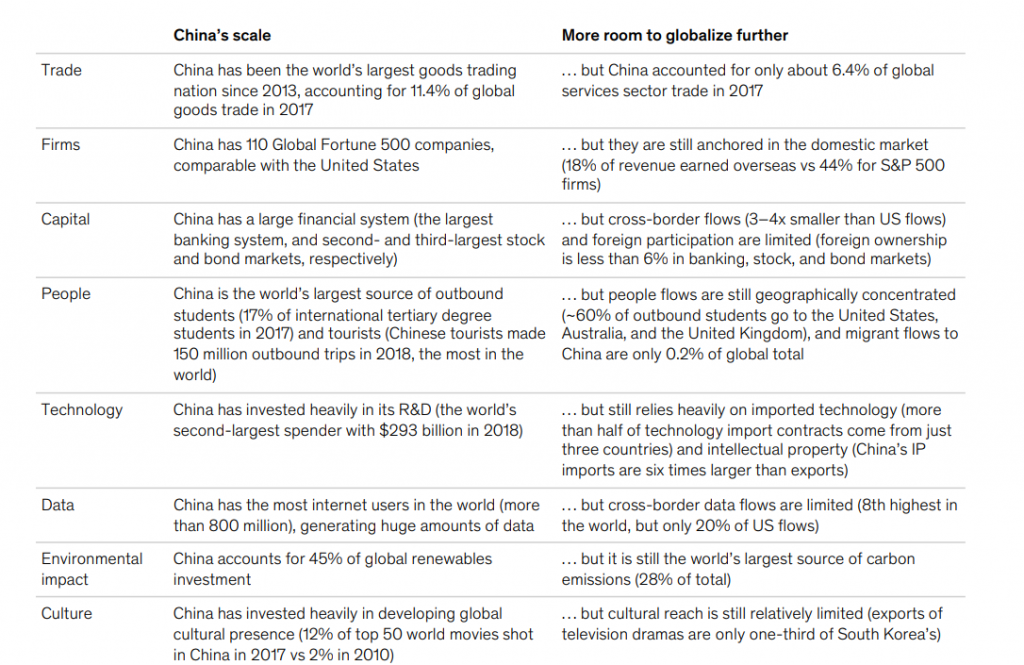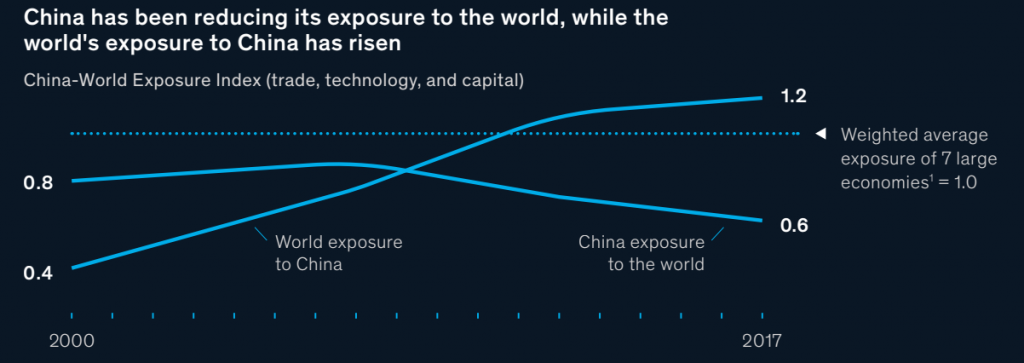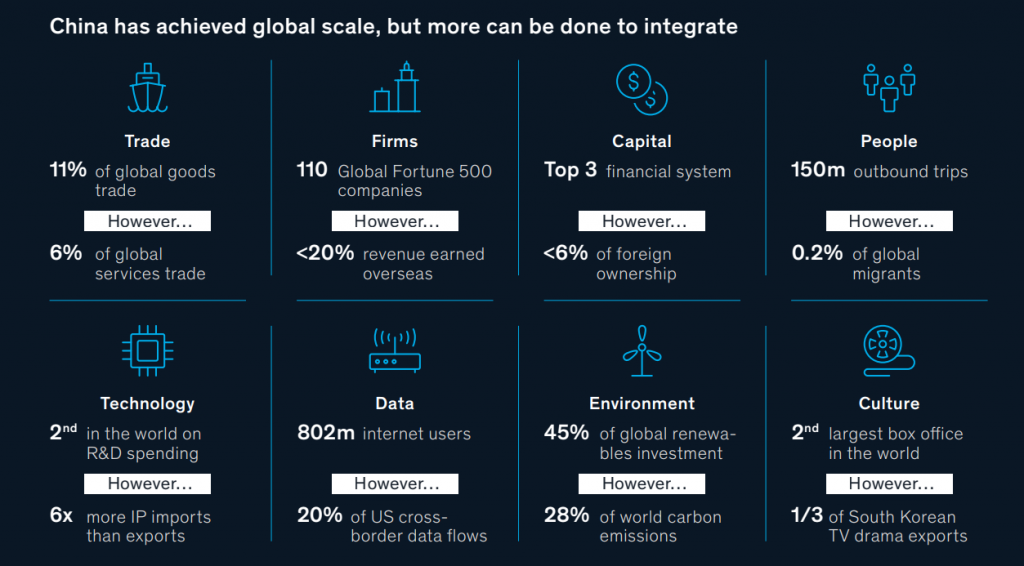China is currently one of the world’s most powerful economies. Now touted as the world’s second-largest economy, China’s growth and economic miracle is fueled by industry, investment and domestic consumption. Its growth took off when China started to open and connect its economy to the rest of the world; embracing market-based system and global best practices of foreign partners. Multinational corporations have also tapped into sources of growth in China’s quickly expanding, dynamic market.
How does their growing influence affect their interactions with other nations?
McKinsey Global Institute made an overview of the dynamics between China and the world in this study. Here are some key takeaways:
Still a long way to globalization
McKinsey Global Institute analyzed eight dimensions of China’s global scale and integration. They found out that while China is the second-largest economy in the world next to the US, not all of this gain in power translates to integration on a global scale.

From our partners:
A shift in exposure dynamics
What is behind this low integration of China to the world? It is the country’s prioritization of domestic consumption. Through the years, China’s exposure to the world saw a constant decline. Relative to other powerhouse economies, China is still relatively closed.

On the flip side, the world is increasing its exposure to China. This can be attributed to China over time becoming more important as a market, supplier, as well as a provider of capital.
The pros and cons of integration
What does China’s global integration — or the lack thereof — entail for China and the world?
- Trade: China could establish itself as a centre for imports if it chooses to go for the integration route. If it opts for the path of less engagement, the world could potentially observe a contraction in trade flows due to continued trade disputes. In the current US-China trade war, there are a lot of countries affected, some benefited from it but others have a lot to lose.
- Service: While the contribution of services to China’s economy continues to grow, accounting for 52% of the GDP back in 2018, the country is operating on a wide productivity gap with other developed economies. If China retains the status quo, this gap will continue to expand. By lifting the operational barriers to foreign players, productivity will increase.
- Financial System: Given China’s closed financial system, there are limited options for asset and resource allocation. This could elevate the cost of capital and volatility. This can also lead to depressing returns. By pursuing global engagement, capital can be allocated more effectively.
- Solving global challenges: By staying isolated, collaboration in solving the world’s problems will be more difficult. By choosing to open itself, China can team up with the world leaders to innovate solutions for the world.
- Global technology flows: With less engagement, China is restricting not only other countries but also itself in accessing critical technologies that will accelerate innovations. In a scenario of freely flowing technologies, both China and the other countries will benefit.
Give and take
While choosing to go global will potentially benefit China, this heavily depends on other countries also doing their part in the collaboration. If the goal is global growth and development, everyone involved should choose to pursue collective rather than self-interest.















